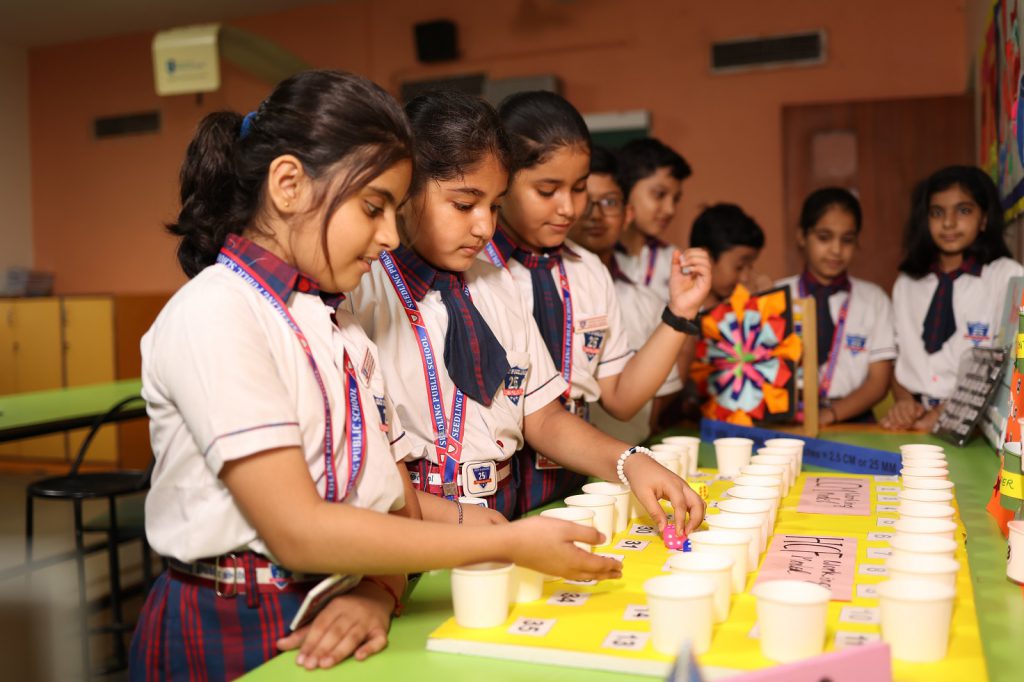Children’s mental health has been long overlooked. Mental health as such, is a topic that is still not discussed openly in society. Even after so many efforts that have been put into making mental health a more discussed issue of the century, there are inhibitions among the common masses.
Discussing one’s feelings, thoughts, and interpersonal exchanges is difficult within families even today. For many people, it is a difficult idea to openly express their feelings for their child. In exchange, when the child wants to showcase his/her feelings, the parent most often refuses to listen.
A restricted family environment in which feelings are not openly discussed between parent and child may lead to a deteriorated mental health of the child. There are many other factors that lead to mental health issues in children.

It is necessary that parents not only accept mental health as a real concept but also address their child’s needs in this regard. Below is a list of ideas that will help improve your child’s mental health.
- Talk About Feelings
As stated above, healthy communication about one’s feelings is key to maintaining your child’s mental health. Whether it is about interpersonal exchange between you and your child or their feelings about something they have experienced outside of the home, if they want to tell, you have to listen.
Listening is also a skill. You need to have an empathetic ear for what they want to say. Showing them a parent’s authority is as important as making them feel friendly with you. They should never feel judged or rebuked for sharing how they feel about something.
Making fun of them is a big no. If your child feels embarrassed or shy, making fun of their emotional reaction is injurious to their self-esteem. If they openly express their emotions, their self-esteem should always be protected.
Even if you feel that they have said or expressed something that needs correction, they have to be made to feel comfortable. Never should be the case that they feel embarrassed after having shared their feelings with you.
- Maintaining their Self-Esteem
As mentioned in the previous point, your child’s self-esteem has to be maintained in all situations. It can be done in a few different ways.
When your child does something praiseworthy, do not hesitate to genuinely praise them. Every child likes to be valued by their parents. If you show them your appreciation for their work, they will not only do such activity again, but they will also develop confidence and self-esteem. This would automatically bring them close to you too.
Give them a chance to be independent. Children can and should make their own decisions. They should be encouraged to use their decision-making skills often. Repeatedly interfering in their thought process to help them make better decisions will affect their self-confidence, leading to poor self-esteem.
Let your child develop healthy self-talk. When your child engages in negative communication regarding themselves, it is important that you prod them towards positive self-talk. For example, if they say that they are incapable of being good in science, rather than telling them that that’s not true, ask them how can they improve. Rather than giving them a direct answer, ask them to engage in self-talk that is motivating.
- Play with Your Child
Playing with your child will make you both feel happy and de-stressed. A good amount of play reduces your child’s risk of developing anxiety or depression. Playing with your child also lets you develop and deepen your bond. The child also feels assured and worthy of your time. This increases their self-esteem and strengthens their resilience to stress and worry.
Healthy Habits
Habits like early to bed and early to rise, eating healthy foods like fruits and leafy vegetables, maintaining an exercise regime and more are good to keep your child mentally healthy.
Teaching them to maintain good habits from an early age will give them the discipline to follow. Following a discipline, any, for that matter, puts the mind in focus. It increases general concentration levels.
With a focused mind, your child will be better able to navigate through the challenges of life in general. A focused mind will not only improve their scores but also give them the ability to understand life’s situations in a better way.
- Extra Curricular Activities
An extra-curricular activity is always beneficial for your child’s mental health. Any activity like classical music, dance, chess, football or anything else that is apart from studies and is seriously pursued is advisable.
The main aim of these activities is to inculcate confidence, personal power, and personality development in multiple dimensions. These activities not only increase your child’s knowledge in the subject field but also give your child a very wide exposure.
Your child will be meeting new people, rubbing shoulders with towering personalities in that field of activity, and much more. This is extremely beneficial not only for their career advancement but for developing their interpersonal skills.
These are only some of the ways by which you can improve your child’s mental health. There are of course a plethora of activities that can be undertaken to make your child reach their full potential and enjoy optimal mental health. You can always start by taking small steps and finding out how you want to proceed next.
Happy parenting!
